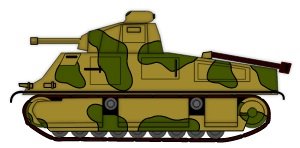Did you know that Gus Pagonis who is widely credited with turning around the fortunes of the Sears Corporation as the Head of the Sears Logistics group was a former army general who ran the logistics of Desert Storm under Gen Norman Schwarzkopf. Many prominent business leaders like Sam Walton of Wal-Mart and James McKinsey, the founder of McKinsey came from the Military.
There is a growing trend among corporations to hire ex servicemen. Many Global companies like GE and Pepsi actively lookout for servicemen with good records and hire them into the organization. Why do military men make good managers?
Let’s look at the historical perspective, As far back as the 1860s, Helmuth von Moltke, a German general, introduced a command system which acknowledged that even the best laid plans start to unravel in the face of changing circumstances. He pioneered a system in which front-line commanders were given clear objectives but then a generous amount of freedom in order to achieve them. The idea that flexibility and adaptability are vital for success is still being taught today. (Source: The Economist)

In ancient Athens in Greece most business owners were also military commanders in the past. It was the school at Mieza in ancient Macedonia run by Aristotle and attended by none other than Alexander the great that has given rise to the Case Study method of teaching. (Source: Alexander the Greats’ the Art of Strategy by Partha Bose) In the late 1920’s it was George C Marshal who is credited with introducing the case study method of teaching military techniques to the infantry school at Fort Benning. Marshal was inspired by the strategy used by Alexander in his conquest of Asia- Minor. This technique was furthered by eminent management thinker Prof Ronald D Christensen of the Harvard Business School, which is followed till date by many Business Schools.
So historically there is connection between military and corporate leaders. There are many things that ex servicemen bring to the corporate world and I will try and list down some of the prominent traits that make a difference.
Overall Strategy– All armies in the world work on the principle of clear objectives. The Army command and control mechanism works on giving clear directions to its commanders on the field so that they can convey the same to their men. For eg during Kargil the objective was to take a few strategic peaks irrespective of other opportunities that’s might have been available at that time. The business world sometimes gets bogged down on this account and often there are no clear objectives given to the employees.
Operational Strategy– All field commanders have the freedom to change their approach depending on the field situation. As long as the objectives are met the field strategy is flexible.
Technology- The armed forces have access to the most modern technology. For eg the army was using mobile communication long before it was commercialized in the 1980’s. Most ex servicemen have experience with cutting edge technology that they can use in the business world.
Developing human resources– Most officers are groomed to be leaders. If one thing the army does better than most is in its ability to identify and groom potential leaders. Not only is it an excellent process to identify leaders, the Army also does a good job in weeding out the rotten apples. Gen Omar Bradley, Gen Eisenhower and General George S Patton were all students at the Fort Benning, groomed by Marshal to become leaders during the Second World War.
Operations– Most national armies run an extensive supply chain that sometimes stretches for miles. To ensure than the supplies reach on time and in a coordinated manner, advance planning is done and it is in this area that officers make excellent corporate managers. Critical skills like Forecasting, Transportation, Supplier Management and having contingency plans for every link in the value chain. For e.g. during desert storm the US troops needed some transport vehicles in a hurry. Gen Gus Pagonis was able to get them their vehicles by going to a contingency plan, where he has listed local Saudi suppliers who owned transport fleet.
These are just some of the areas where military men score over others in management. But having said this it is important for them to take a business course to orient them better to the corporate world. Even warriors need some orientation and as long as business is war there is always room for the warriors.
You might like reading:

Interim Placement Report SIBM Bangalore 2014-15
Final Placements for the batch 2013-15 Final placements for the batch of 2013-15 at SIBM Bangalore saw tremendous growth in the diversity of profiles offered comprising of Business Analytics, Supply Chain Management, Social Media Marketing, B2B & B2C Marketing, Talent Acquisition, Procurement, Market Research, Investment Banking, Equity Research, Credit Risk Analysis, Logistics, Strategic Sourcing, Consulting, Corporate HR and the like. […]

If a woman buys, will men also prefer the same product ?
We may say that each household today has a woman CPO (Chief Purchasing Officer) who influences almost all the purchase decisions of the family. Now this decision range is not only confined to the female specific products like beauty creams, kitchen appliances etc. ,but also to other product and services which the family consumes. This makes women the most important […]






























